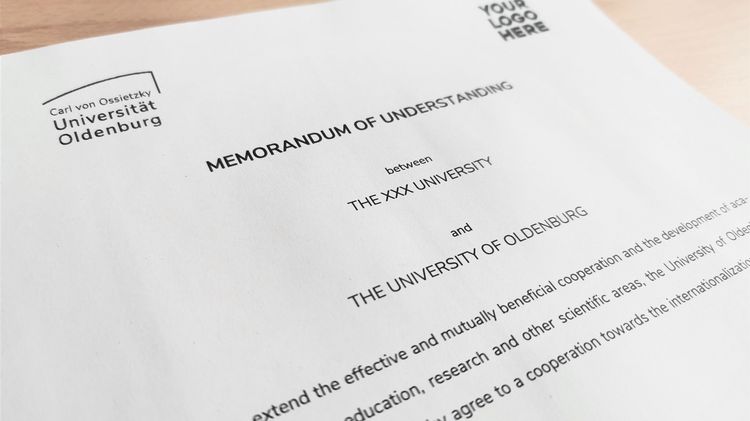Establishing partnerships
Contact International Office
Regional coordinator for Europe
Regional coordinator for Africa, Asia, Oceania, Middle East, Russia and Central Asia
Regional coordinator for North and Latin America
Erasmus ID Code: D OLDENBU01
TOEFL Code: 3556
Draft agreements
-
 Factsheet Exchange Partner Factsheet University of Oldenburg
Factsheet Exchange Partner Factsheet University of Oldenburg -

-

Establishing partnerships

The International Office is here to answer all your questions regarding partnerships with other universities and to provide ongoing assistance during the process of drawing up cooperation agreements. We do not initiate and maintain contacts between individual scientists and/or research departments.
Partnerships between universities are based on different types of contract.The most common type is a general, overarching Memorandum of Understanding (MoU) – an agreement in principle, which can be expanded by amendments or further specified in additional contracts (e.g. a Student Exchange Agreement).
When establishing cooperation agreements with partner universities, the International Office is on hand to:
- Provide preliminary advice (types of contract, procedure, assessment of the foreign university, etc.)
- Provide suitable model contracts
- Review contracts proposed by the foreign partner university to ensure that they are compatible with the University of Oldenburg’s own contracts (specifically, to identify potentially critical or legally questionable passages and reword the text if necessary)
- Organise the internal process (the IO ensures that the contracts are checked by the Legal Affairs Unit and signed by the President of the University. The final documents are then sent to all contract parties)
- Register the contracts in the university’s internal databases and in the HRK Higher Education Compass
- Archive contracts
- For contract renewals: amend contracts at the request of the relevant school or institute
